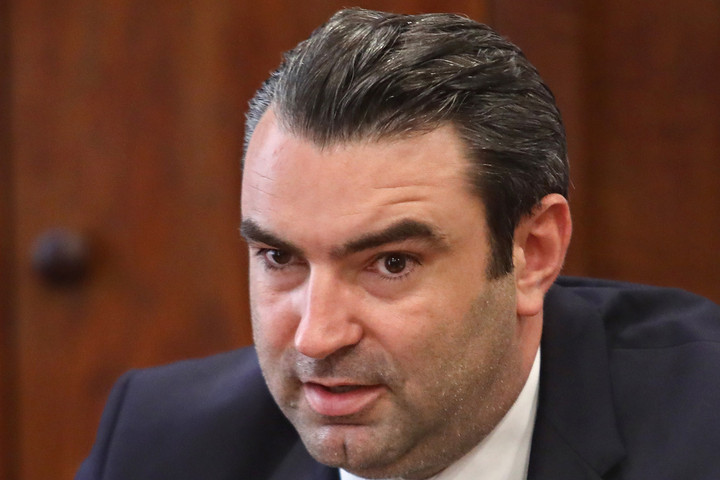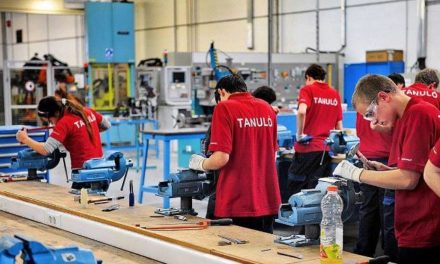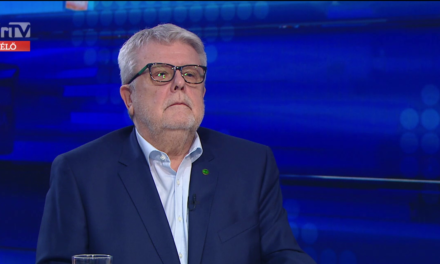The constant threat of the "rule of law" would not strengthen European unity, but division.
The European Commission gave a terse, uncharacteristic response to the open letter of the Civil Solidarity Forum (CÖF) and the Civil Solidarity Non-profit Foundation (CÖKA) regarding the rejection of the Hungarian and Polish claim in the case of the rule of law conditionality decree in the judgment of the Court of the European Union.
Constitutional lawyer Zoltán Lomnici Jr. told Hungarian Nemzet that the decisions made by EU institutions in recent years have resulted in serious legal uncertainty, so the sovereignist forces, those who believe in a Europe of strong nations, must make their voices heard more and more determinedly.
On February 16, the Civil Solidarity Forum (CÖF) and the Civil Solidarity Foundation (CÖKA) published their open letter addressed to the President of the European Commission, Ursula von der Leyen . As it was written, it did not cause any particular surprise that the Court of Justice of the European Union rejected the Hungarian and Polish claim in the case of the rule of law decree, since
the decision was foreshadowed, among other things, by the statement made earlier in an interview by Vice President of the Commission Vera Jourová: she is determined that the European Commission enforce the relevant financial mechanism.
To this end, he also mentioned the freezing of EU budget subsidies as a possibility for member states that, in his opinion, violate their obligations. The Union's Commissioner for Values and Transparency practically threatened some Central European countries with this, they wrote in their open letter, in which they drew attention to the fact that, even in the midst of the epidemic crisis, Hungary and Poland resolutely defended and are defending their sovereign political interests, and in 2021 On March 11, shortly before the deadline, a lawsuit was filed at the European Court of Justice.
Attention is drawn to:
the constant threat of the "rule of law" would not strengthen European unity, but division.
The political consideration presents a double standard of a constructive legal institution and an ideologically based one, which would shake the trust in the EU institutions and ultimately endanger the survival of the community. Is this really what Jourová and other left-liberal executives in Brussels want? – asks CÖF-CÖKA.
At the end of their open letter, they emphasize: "as a committed representative of the Hungarian national citizens, we consider that today's decision of the court and the attitude of Brussels in general towards the procedures mocking the rule of law violate the people's sovereignty, they are trying to weaken the principle of the people's sovereignty, and by giving almost exclusively to NGOs meaningful space in EU procedures, they also violate the enforcement of civil pluralism. This kind of double standard undermines the EU, it not only slows down the process of integration, but is also capable of undermining it".
Short answer
The European Commission's directorate of fundamental rights and the rule of law indicated in its terse reply that they had taken note of the letter addressed to Vice-President Vera Jourová, but at the same time, the rule of law report was not a report prepared by an individual, but a report of the European Commission, which was created through an inclusive and collaborative process. As it was written, in this process the member states and interested parties also give feedback. The report is officially accepted by the board of commissioners.
In their response, they also reminded that the European Commission does not accept personal attacks against its officials.
In his response, the representative of the European Commission emphasized that they will continue to closely monitor developments in Hungary, including in connection with the annual rule of law report, and that they remain firmly committed to respecting EU law and values, because, according to them, this serves Hungary and the rest of the world. interests of citizens of European Union countries.
We don't want to be educated
Jr. Constitutional lawyer Zoltán Lomnici, the CÖF-CÖKA spokesperson, explained to our newspaper in relation to the case that our latest open letter criticizing the wrong decision of the EU court from a national and civil point of view really seems to have blown the fuse. In its reply, the European Commission states that the body does not accept "personal attacks against its officials".
Zoltán Lomnici Jr. reminds:
previously, the committee had dialogue with the management of the CÖF-CÖKA on several occasions through an exchange of letters, but in such an offended tone - and by the way, so quickly - the EU body has not yet responded to any of our inquiries.
However, there were plenty of tough topics, from the failed EU migration policy, beyond the catastrophic handling of the pandemic in Brussels, to the discriminatory exclusion of pseudo-civilian NGOs, nationalistic civilians never hesitated when it was necessary to strike a firm, tough tone - added the constitutional lawyer, drawing attention that they were never disrespectful, even in our last open letter, the committee's narcissistic reaction is therefore incomprehensible, and at the same time it indicates - since the organizer of the event is the Civil Solidarity Forum - that
not only the Hungarian left, but also Brussels is afraid of the Peace Process.
According to Zoltán Lomnici Jr., the uncharacteristic response of the committee did not cause any particular surprise, as did the fact that the Luxembourg-based Court of the European Union rejected the Hungarian and Polish claim in the case of the so-called conditionality decree.
As he said, the representatives of the EU institutions are always careful to give only general answers to the problems raised, even though the citizens living in the Union, including the Hungarian people, have a duty to provide substantive answers.
"As President Csizmadia puts it, we don't want to educate, and we don't want side talk"
- quoted the spokesperson of CÖF-CÖKA.
Zoltán Lomnici Jr. also told our paper that, according to CÖF-CÖKA's point of view, the government has kept the case under control until now, and they also agree professionally with the professional arguments contained in the claim and which they have learned about the decree concerning the new financial mechanism.
The decisions made by the EU institutions in recent years have resulted in serious legal uncertainty, so the sovereign forces, those who believe in a Europe of strong nations, must make their voices heard more and more determinedly.
he said.
Cover image: MTI













